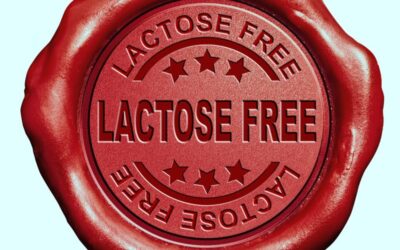IBS symptoms can be debilitating and have a significant impact on the lives of sufferers and their families. But, is diarrhoea typical of IBS symptoms? IBS symptoms manifest themselves in different forms, some people experience loose stools and urgency, whilst others constipation. And some people have a mixture of both. People can often endure decades of symptoms learning to accommodate IBS into family and work life. Sufferers report all kinds of avoidance behaviour, for example refusing invitations for nights out, shopping trips and even holidays. IBS affects work, with sufferers needing time off to manage their symptoms or visit their GP. If you have IBS symptoms, especially IBS-D for diarrhoea, then read on. This blog is for you… Firstly though some tips for all types of IBS.
FAQs
If you’re suffering from IBS (irritable bowel syndrome), then answers to some FAQs about IBS symptoms may help… Common questions are: When do you I need to see my doctor? (see below) What can I do to improve my IBS symptoms? Is the low FODMAP diet for me? I’m vegan (or vegetarian), is the low FODMAP diet for me? Is low FODMAP a weight loss diet? I have a holiday coming up, so should I wait? For answers to help your IBS symptoms in more depth, see my other blog here: FAQs about IBS symptoms. Or read on for more help here if you have IBS-D for diarrhoea.
When do I need to see my doctor?
This is a question I’m often asked. The simple answer is – if your bowel habits change suddenly, you have blood in your stools or you have sudden weight loss it would be sensible to see your doctor as soon as possible. If you’ve had IBS symptoms for some time, then your doctor may suggest some investigations to rule out other causes for your symptoms. These may be blood tests to detect deficiencies or gluten sensitivity (coeliac disease, for example). If these are inconclusive or you have other risk factors, you may be referred to a gastroenterologist for a colonoscopy or endoscopy. Try not to worry though, as a diagnosis of IBS is usually made by ruling out other conditions.
Are you eating regularly?
So, if you suffer from loose stools or diarrhoea I’d advise trying a few things. Firstly, make some changes to your diet. Ensure that you’re eating regularly – this is really important! Missing meals may mean that you overeat at the next meal and this can overload your gut. Try especially to have a good breakfast. For most people breakfast is the best opportunity of the day to get in a good portion of fibre. Are you getting enough fluid? A regular intake of fluids, especially water will help replace any losses that may result from loose stools. It’s recommended to drink 1.5-2 litres daily, but even more in warmer weather or when you’re exercising.
Can other changes to your diet help?
If you have loose stools start off the day with a good breakfast. I’d suggest porridge or other oat-based cereals such as Oatibix or Oatiflakes, as this will ensure a good portion of fibre. Ensure that you include some ‘stodgy’ food at each mealtime, such as bread, pasta, rice or cereal. Along with fibre, these will help to bulk out your stools and make them more ‘manageable’. For this reason, when you have a salad or soup, always ensure that you have some bread, pasta or crackers with it. The recommendation for adults in the UK, is that we eat 5 portions of fruit and vegetables per day. Try not to exceed this if you have IBS-D for diarrhoea. If you’ve already tried these dietary changes, you may be ready to try the low FODMAP diet.
Is the low FODMAP diet for me?
The low FODMAP diet can help with IBS symptoms and is most effective in those with IBS-D. It improves symptoms in over 75% of IBS sufferers. It comes backed with a whole load of evidence and is recommended by the NHS. It’s a tricky diet to do alone and the best results are seen in those who have advice and support from an IBS dietitian. Specialist advice from an IBS dietitian, can help you navigate the complexities of the diet and help to make the diet practical to fit in with your lifestyle. For more information about the low FODMAP diet and to help you decide it this is the right approach for you, see my webpage about IBS treatment.
Change your life in just three sessions
Need help to manage your IBS symptoms? I’m based in Cardiff, but work with IBS sufferers across the UK through online sessions. The vast majority of my clients have found that only three sessions are needed before they feel confident to move forward on their own. I will send you booklets, which have an extensive list of all the foods you can eat on the low FODMAP diet. I’m available for advice and support between sessions. Find out more about my IBS symptoms relief package. I offer a free initial telephone call for you to decide whether the low FODMAP diet is right for you. So give me a call or fill out the contact form.
Many of my clients say that working with a specialist IBS dietitian has been life-changing, and are finally managing to live more comfortable lives.
Read about previous client experiences and to help you decide it this is the right approach for you, see my webpage about IBS treatment.
Disclaimer: This blog is for informational purposes only and should not be taken as medical advice. Always consult with your GP before making changes to your IBS treatment plan.




